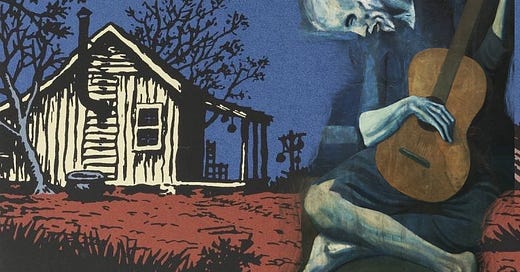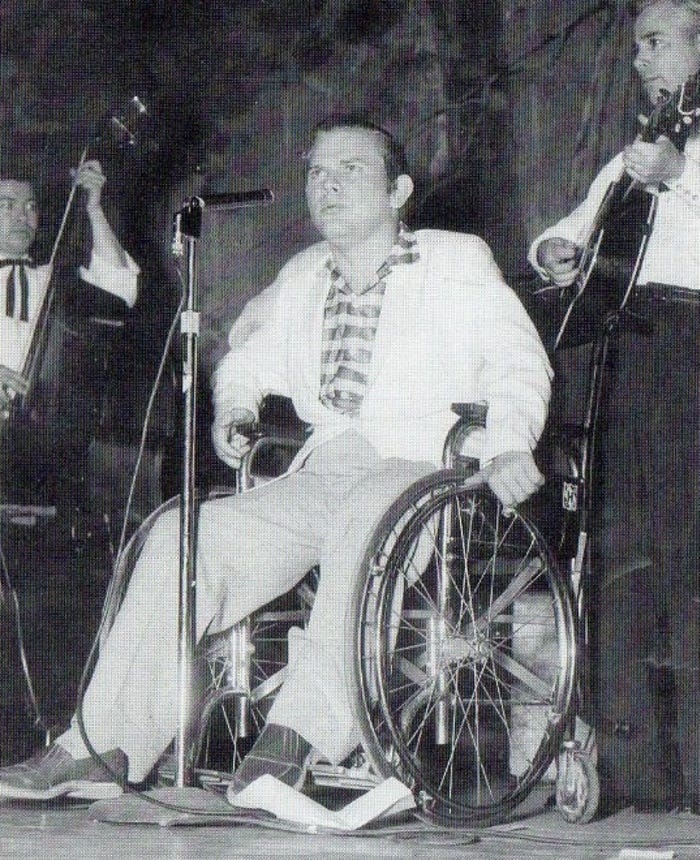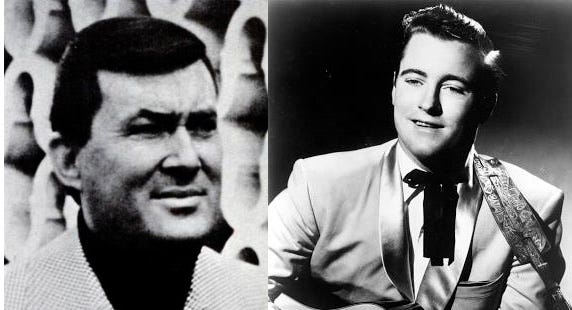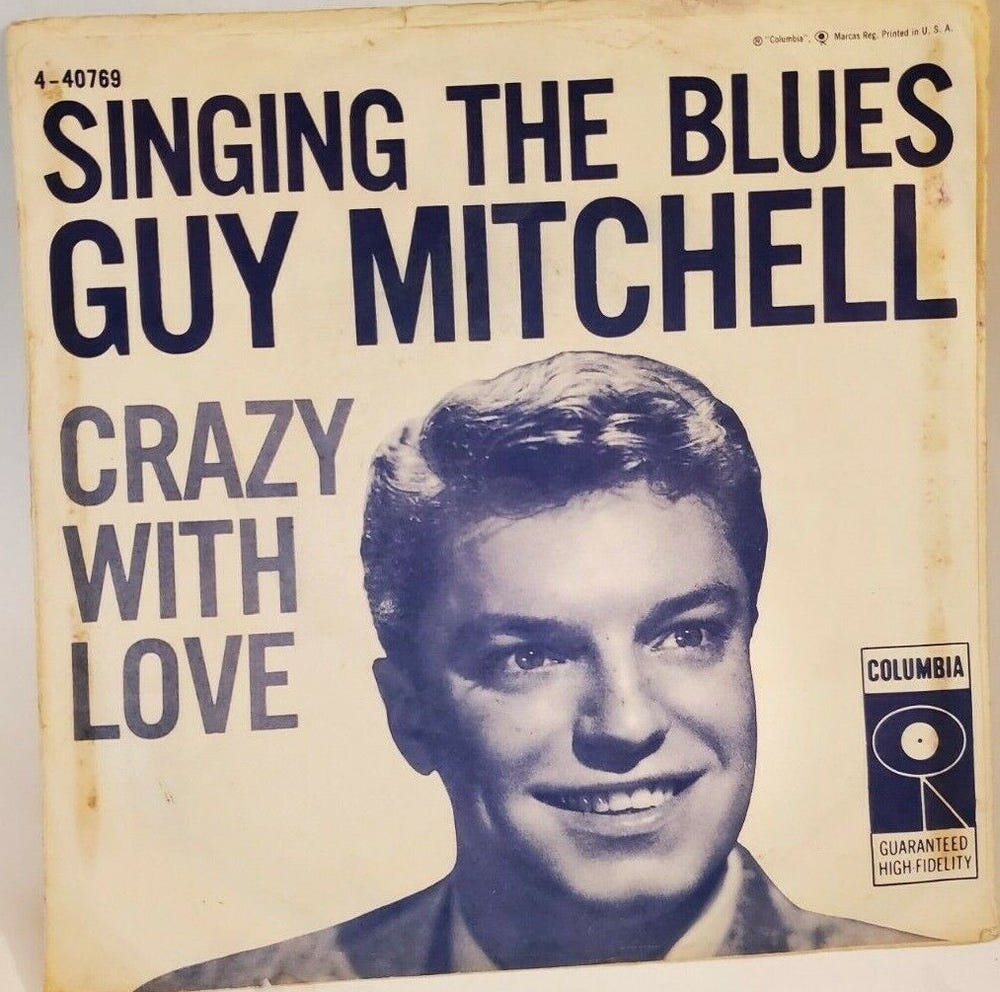Purists love to tell us that many songs with “blues” in their title — “Blues in the Night,” “Birth of the Blues,” “Lovesick Blues” — technically are not blues at all. (Shoot, even the great “St. Louis Blues,” while it certainly opens with a traditional 12-bar blues structure, wraps up with 16 bars in a habanera rhythm that its composer W.C. Handy called his “tango section.”)
Of course, many of these cited songs aren’t meant to be blues, but to be about having the blues, and 1950s classic rocker “Singing the Blues” certainly meets those specs.
A perfect honky tonk tune of its time, “Singing the Blues” was written by 20-year-old Arkansas native Melvin Endsley in 1954. The following year, Endsley took his song to Nashville to pitch it backstage at the Grand Ole Opry. And it worked. In 1956, Marty Robbins recorded the song (which is credited, by the way, with putting Robbins on the musical map).
It was pretty good for Endsley's career too. His writing talents were in high demand after Robbins's success. Over his 50-year career, Melvin wrote some 400 songs that were recorded by hundreds of artists.
Living the Blues
Melvin Endsley himself had more than a passing acquaintance with the blues. In 1937, when he was three years old, he contracted polio, requiring him to use a wheelchair for the rest of his life.
Then, starting at the age of 11, he spent three years in the Crippled Children's Hospital in Memphis. However, the resourceful youngster parlayed that into a life-altering experience. While in the hospital, Melvin regularly listened to music on the radio, and he taught himself to play the guitar.
After returning to Arkansas, the teenaged Endsley began performing on local radio shows. By the time he was 20, he had an original song — "It Happens Every Time" — that caught the attention of a couple of established artists, Don Gibson and Dorsey Burnette, who encouraged him to continue his songwriting.
Within months, Melvin had created the song that would change his life.
While “Singing the Blues” was first recorded by Marty Robbins, its best-known recording was released in October 1956 by Guy Mitchell, whose rendering of it spent 10 weeks at No. 1 on the U.S. Billboard chart from December 1956 to February 1957.
Two other charting versions of the song — Robbins’ original along with one by English singer Tommy Steel — also were released almost simultaneously with Mitchell’s.
Since then, “Singing the Blues” often has been revived. In the 1960s, for instance, Bill Haley & His Comets, Hank Snow and Dean Martin all made recordings of it.
In the 1970s came versions by Black Oak Arkansas and by Marie Osmond. In the 1980s, it was Gene Summers and Randy Travis, while the ‘90s saw takes by The Kentucky Headhunters and by Paul McCartney.
The English Football Connection
Weirdly, the tune also has resonated with English football fans. It has been sung since the ‘60s by fans of various clubs, usually offering parodies of the opening lyrics.
For example, Everton fans sing, "I've never felt more like singing the blues, when Everton win and Liverpool lose. Oh Ev-er-ton, you've got me singing the blues."
Our Take on the Tune
Pamela Bowen, who has been our band manager for more than 20 years, is a major influence on all things Flood, from the venues we visit to the tunes we play when we get there.
So when Pamela recently suggested we augment the roots music portion of our repertoire with some more classic old-time rock, we started casting our thoughts back to the tunes that stirred our youth, like this from the Fifties.
Our first public performance of the song was last week at Sal’s Speakeasy, where, as we reported here earlier, it even made Pamela’s video from the night.





















Share this post